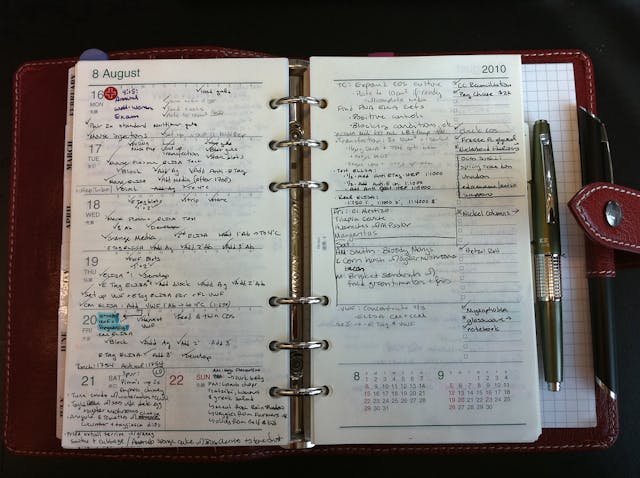
The Death of a Side Project
The inevitable can be prolonged with goal-setting, planning, and regular check-ins, but not forever.
Most side projects, especially if they are ongoing projects, will eventually hit The Grind. The inevitable can be prolonged with goal-setting, planning, and regular check-ins, but not forever.
At some point, something will feel off about a project. That usually means there are one of two scenarios at play:
- The project is no longer following its purpose — i.e. supporting its goals, solving its problem, or working to proving the theory behind it.
- The purpose of the project (goals, problem, test case, etc.) or the priority of its purpose have changed.
Transitioning From The Grind via The Shift
I wrote in The Lifecycle of a Side Project that the way to overcome The Grind is by moving into The Shift as quickly as possible. It's during The Shift that we choose the project's fate.
One such fate is to stop working on — to kill — the project. This is often difficult to do, especially when you feel personally attached to the project. The longer a side project has been in your life and the more personal its purpose is to your purpose, the more difficult it is to kill.
And yet, when considering your future, that may be the best course of action for you.
Everything changes over time. Goals that were important years ago may not be important now. Priorities in life can shift without warning, leaving less than enough time to achieve the goals of the project. There's nothing wrong with that.
I've Been There
I began learning how to write code to build websites and apps about seven years ago. Through that process, I became frustrated with nearly every content management system (CMS) I worked with. I didn't feel like any were serving me or my projects properly. So I set out to make the World's Best CMS, and I was going to make it free for (almost) everyone. I built and rebuilt the CMS application five times, and they got better every time. (There is still someone using every version of that CMS.)
Two years ago, I set out for yet another rebuild. At that time, I felt ahead of the game — so close to achieving something remarkable in that space.
And then I took a minute to stop and look around.
I hadn't used other CMS products in almost five years, and it turned out there were hoards of new ones. Some of them were really good. Some of them had a free tier and seemed like they could solve my problems. Plus, many had teams of people and millions of dollars to throw at solving content management problems, which was something I never had.
I debated with myself for months. This was such a passion project, so I felt I could justify continuing to work on it. But the truth was I knew the answer — it was time to kill the project.
That's one of the harder things I've done in my professional life because I felt truly attached to that thing. It had made me who I was as a programmer.
I still think about going back and working on it from time to time. But I know I made the right decision for me, personally and professionally.
The Merciful Kill
So, how do you kill a project?
First, especially if the project was meaningful to you, know that it served you well. It may very well always be part of your story as you reflect on your life, and it's important to have gratitude for those things that helped shape who you are.
But more importantly, kill it or don't. Avoid falling in between. Don't let it sit around, suffer, and slowly fizzle out. If you know it's not serving you well, let it go. You're wasting your time if you keep working on a project that you already know isn't serving you.
When it Makes Sense to Pause
You may know that one potential outcome of The Shift is to /pause/ a project. That is a specific case, and you should know what you're doing if you're going to pause a project.
Pausing a project means something is currently and temporarily in the way of your project being able to achieve its goals. The only way to pause effectively is to know when and how you're going to resume. Otherwise, you've killed the project but failed to admit it. And while there are worse decisions you can make, if a project feels paused when it's really dead, it will take up brain space for you that should be used on something more meaningful.
For example, I've paused writing for this blog on several occasions. One such occasion was after my first child was born. I knew I was going to be distracted, so I decided to take six months off and then reassess. I did just that and now I'm back writing again (until New Baby, Part 2 comes along).
I've also written a novel. I was partially through the first rewrite of it when other priorities got in the way. I keep saying its paused because it's such a big body of work that I'd love to get out into the world. And maybe someday I will. But for now, whether I want to say it or not, it's dead. But if I don't call it dead I'll keep thinking about it when I really should be focusing on the higher priorities.
The Doer vs The Achiever
I've spent this entire article trying to convince you that it's okay to kill your project. I'm going to close by taking a moment to suggest the opposite.
Look, you have to finish something at some point. Otherwise you're just The Doer. And that's a reputation will follow you. If you're constantly picking up new projects and not taking them to the finish line, then you ought to consider how to adjust your approach to complete a project.
One piece of advice I often offer in this situation is to ignore The Grind and power through. It goes against what I more often preach, but it can be a powerful tactic. It can be intimidating to take a project to the finish line. Sometimes working on a thing is so fun that you don't want to stop. And in those cases, it's easier to kill a project rather than working through the pain and finishing it (or taking it to the next level, phase, etc.).
It's important that you know what it's like to be The Achiever — that person who accomplishes what they set out to accomplish. You must know what it takes to finish a project to be able to make informed and strategic decisions about the future of your projects.
Be honest with yourself through the process of deciding a project's fate. Try to pull yourself away from the emotion as much as possible and make an objective decision on what is going to be best for you and your future. And remember, your current project will always be part of your past.


